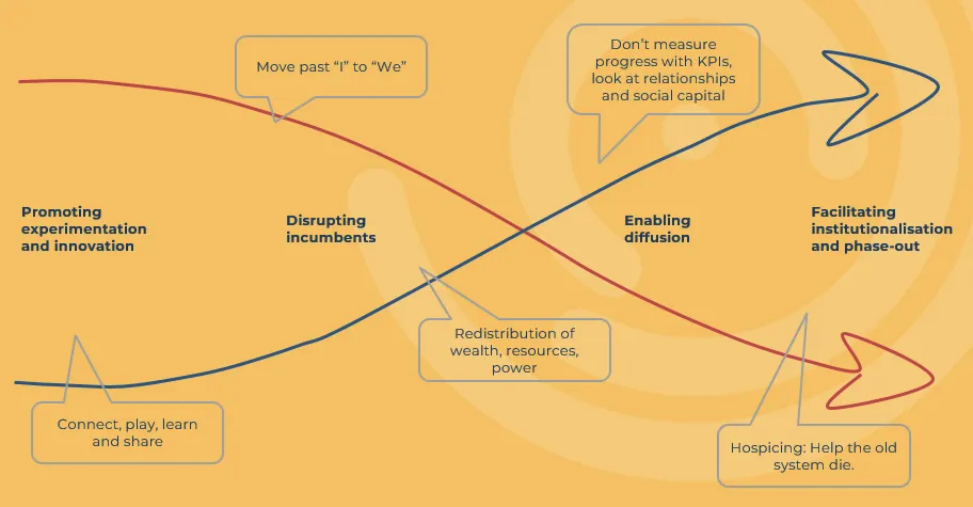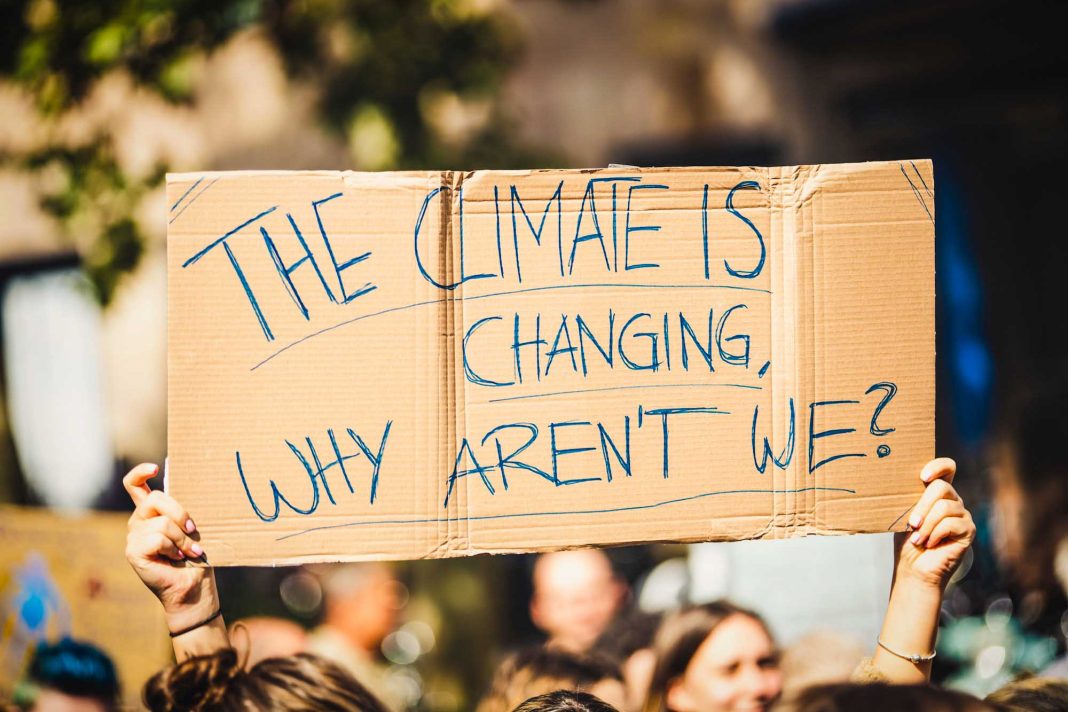Systemic change is like a birthday present: everyone wants it, but no one is quite sure what’s inside. Or so the saying goes.
The concept feels just beyond comprehension. What does it look like to change everything, everywhere, all at once?

Both the climate crisis and pervasive social challenges (think housing, energy poverty, food access) show us that we need change of some sort, and it is only logical to double down on them simultaneously rather than attempting to pick off issues one-by-one. Topsy-turvy greenhouse gas emission reductions in Europe, for example, make it clear that climate change response requires a systemic approach: since 1990, the bottom 50% of EU income-earners has reduced their emissions by 24%, while the top 10% and 1% have increased their (already higher) emissions by 3% and 5% respectively.
When we see these tangled social-ecological ribbons, systemic change does indeed seem like a gift: let’s open it up and peek inside.
Systemic change is fundamental, transformative and cross-cutting change, which entails major shifts in systems goals, incentives, technologies, social practices and norms, knowledge systems and governance approaches. The systems in question are those that we can’t live without — primarily food, energy, mobility, and housing.
In other words, systemic change affects how the entire system functions, and it forms the new normal. But what individual or entity is able to influence the entire system? The best shot may well be to define system boundaries (e.g. food) to tackle over the long term, but never losing sight of relations with the other systems.
As a few UrbanCommunity members put it: systemic change means helping the old system die by bringing little bits of change into it. It is a process of hospicing. And it is hard work.

Transitions researchers have visualised the process of systemic change through the ‘X-curve’ diagram, above. In these simple lines, we see the old system being disrupted and phased out, while the new system is catalysed, supported, diffused and institutionalised. For example, imagine renewable energy as the blue line and fossil fuels as the red line. Or a circular economy as the blue line and the take-make-waste economy as the red.
Since the whole point is to shake up the status quo for the better, experimentation and innovation is key. Our UrbanCommunity experimenters have shared a few tips for those brave enough to think and act big:
- Keep open to unexpected things, rather than being fixated on the outcome
- Play with the process, make mistakes
- Care for each other, don’t close your bubble
- Remember that systemic change is not about abstract change out there, but how we relate to each other
- Move past the ‘I’ to the ‘We’, this includes humans and non-humans
- Try to make change every day — if we are stuck in principle it is very hard to make real change
Importantly, they noted that funders of experiments should not measure progress with KPIs and deliverables, since a strict results-orientation is not conducive to change in the form of relationships and intangible social capital.
In brief: systemic change seems crazy. After all, we only know the world that exists right now. But when we break it down, change seems more manageable and even fun. The ‘X-curve’ gives us a vision and we have creative experimenters to show us what’s possible.
This article was originally published on the Medium blog for Sustainable Just Cities. It is replicated on CityChangers.org with kind permission of the author, Sophia Silverton from ICLEI Europe. As part of her role as an Officer in Just Transition and Culture for Sustainability, Sophia coordinates compelling webinars and produces podcasts with the UrbanCommunity for Sustainable and Just Cities initiative.


